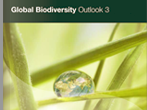Ecology meeting along the Mekong
Close to 40 Jesuits, religious and lay companions from across the Jesuit Conference of Asia Pacific gathered in Kompong Cham, Cambodia, from 11 to 15 July for the first JCAP meeting on ecology.
Reconciliation with Creation is a JCAP priority engagement and the meeting aimed to build a common understanding and shared approach to environmental issues among the Provinces.



 We are pleased to invite you to subscribe to
We are pleased to invite you to subscribe to